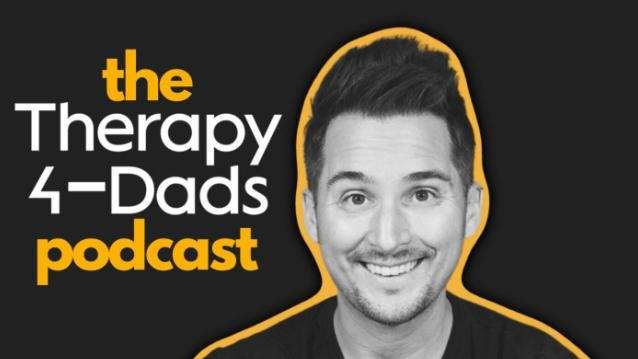
This might count as what the younger generation calls a “vulnerability post.” I’m not totally sure I’ve got the term right, but what I do know is that putting myself on camera isn’t my comfort zone. What I do love? Sitting down with another therapist and diving deep into topics like connection, parenting, and emotional growth. But filming that and sharing it publicly? Definitely outside my usual. Still, I ask clients all the time to stretch themselves in the direction of discomfort, so here I am doing the same.
Below is an interview I did with Travis Goodman, a relationship therapist in California, who hosts a podcast called Therapy4Dads. He reached out after reading my article on men and relationships that was shared by the Gottman Institute. Given my focus on men’s mental health, the Institute connected us — and I’m so glad they did. Travis is thoughtful, curious, and clearly passionate about helping fathers navigate relationships and parenting. The conversation felt meaningful and energizing, and I hope parts of it resonate with you.
We focused on applying the Gottmans’ “Sound Relationship House” model to the experiences many men face — especially those juggling the emotional labor of parenting with the internalized expectations of masculinity. Understanding the building blocks of a healthy relationship can be a huge step toward being a better partner, and in turn, a more grounded and emotionally available father.
Here’s the full interview if you’d like to watch:
The Sound Relationship House: A Quick Overview
The Gottman Method outlines seven key levels that make up the Sound Relationship House. Each one supports the others, and together they form the foundation of a healthy romantic connection. Here’s a quick look at each level:
- Build Love Maps: Know what’s going on in your partner’s internal world — their stressors, dreams, friendships, daily routines, and emotional rhythms. Ask questions and stay curious.
- Share Fondness and Admiration: Let your partner know what you respect about them. Not just what they do, but who they are. Appreciation only works when it’s expressed.
- Turn Toward: Respond to small moments of connection — a sigh, a joke, a hand on your arm — with attention. These micro-interactions are the glue of intimacy.
- Maintain a Positive Perspective: Look for what’s working. This doesn’t mean ignoring problems, but it does mean remembering the love that brought you together in the first place.
- Manage Conflict: Disagreements are inevitable. What matters is how you handle them. Listen, validate, and own your reactions — your partner doesn’t “make” you feel anything.
- Make Life Dreams Come True: Support each other’s passions, hobbies, and goals. The happiest couples are often those who actively encourage one another’s personal growth.
- Create Shared Meaning: Develop rituals, traditions, and shared goals. For example, something as simple as going to bed at the same time can increase closeness. As a Seattle sex therapist, I’ve seen how small shifts in daily habits can open up space for more intimacy.
Real-Life Application
In one recent case, I worked with a couple raising young kids, both feeling overwhelmed and disconnected. The husband, in particular, felt stuck in the tension between wanting closeness and not knowing how to get there. We focused on just three practices: building love maps, turning toward bids for connection, and expressing fondness. Those alone helped restore a sense of friendship between them — and their communication noticeably improved within a matter of weeks. It’s a reminder that foundational steps can lead to real change, especially when paired with intentional effort and the support of a couples therapist in Seattle.
Resources for Men in Relationships
Men often receive little guidance on how to be emotionally present in their relationships. If that’s something you’re working on — whether as a partner, a father, or simply a man who wants deeper connection — you’re not alone. You might also find these helpful:
- The Mask You Live In
- Masculinity and Men’s Mental Health
- Postpartum Depression in Dads: The Hidden Struggle of New Fatherhood
Moving Forward
If you’re exploring how to be a better partner or are curious about applying the Gottman concepts to your own relationship, marriage counseling or men’s therapy can be a powerful step. At Clarity Counseling Seattle, we work with individuals and couples to build stronger, more emotionally connected relationships. If that’s something you’re ready for, get in touch with us. We’d be honored to support you.
